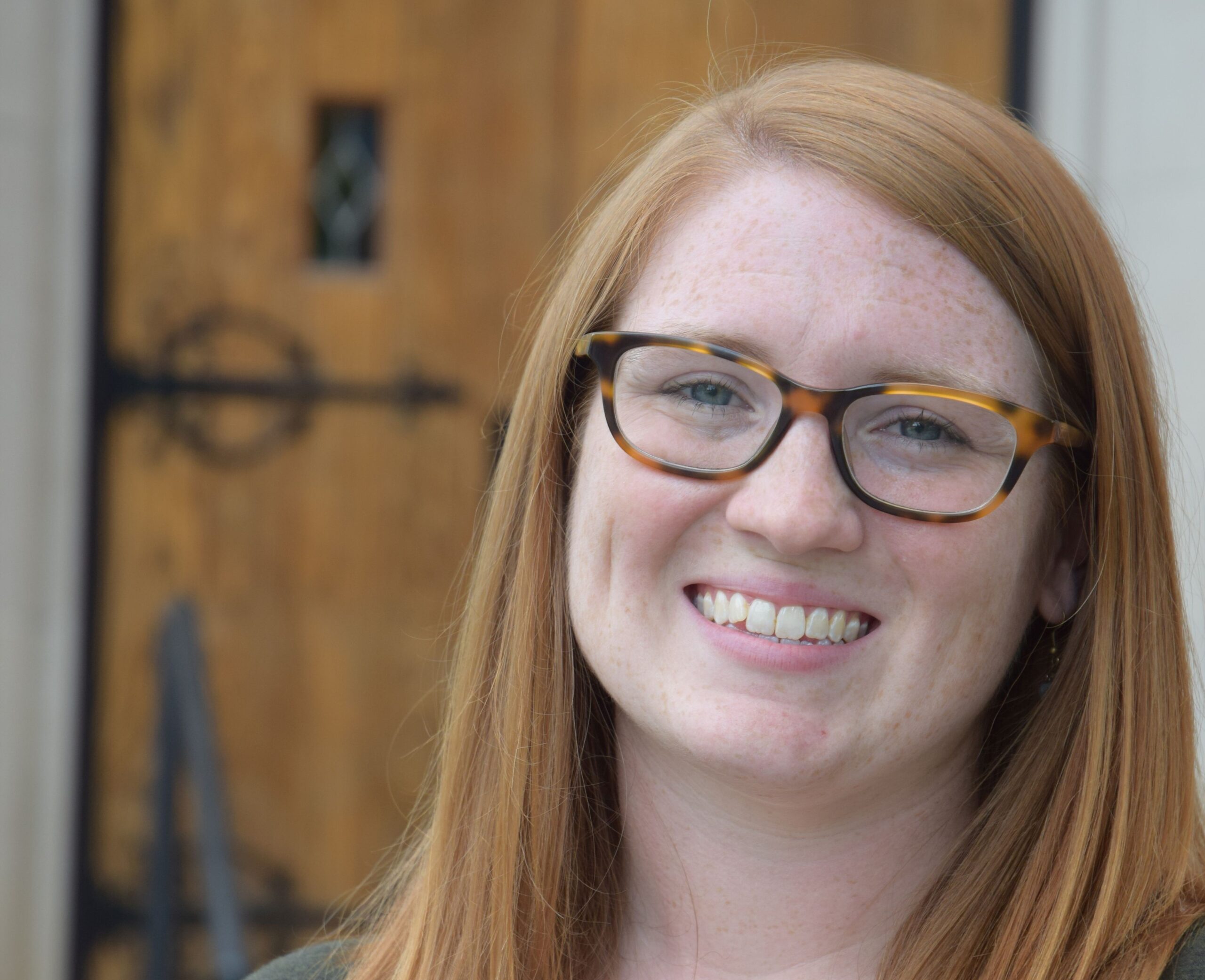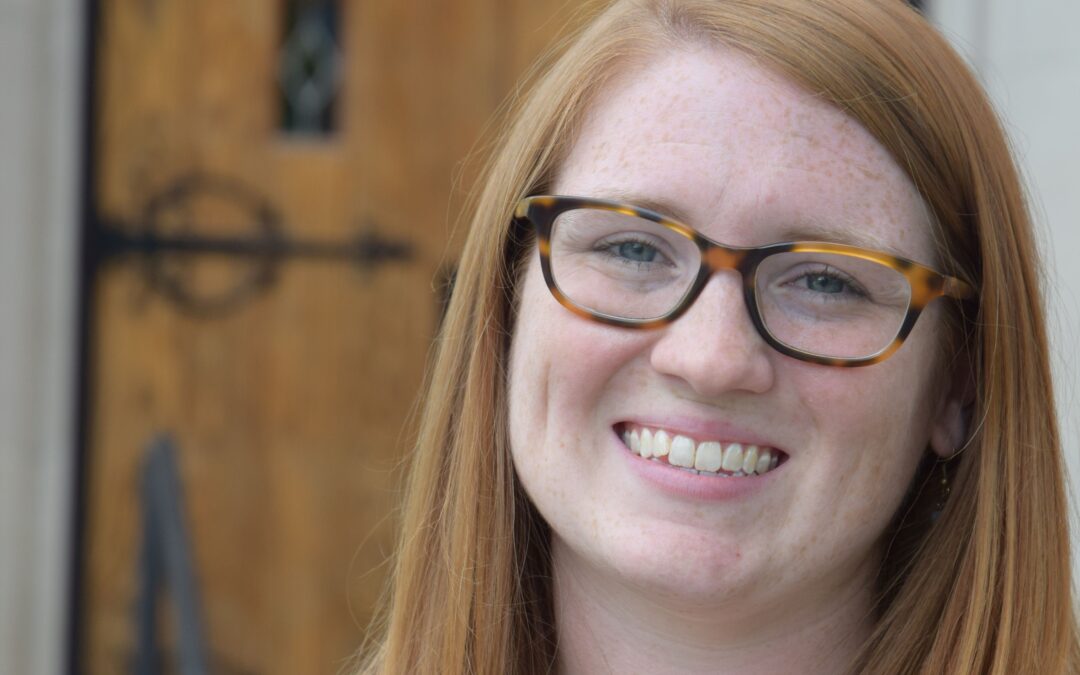 Strong Women of Faith: “HAGAR”
Strong Women of Faith: “HAGAR”
Rev. Emily Wilkmesherr
Decatur Presbyterioan Church
Decatur, Ga
June 19, 2022
Scripture: Genesis 16
Today starts the Summer Sermon series on Strong Women of Faith where we will dive into the stories of women in the old testament to see what they tell us about God, ourselves, and how we are called to live in community together.
We begin with Hagar. Her story is often told in the background of Sarah and Abraham’s story, but Hagar’s story is a part of God’s promise to all people and a part of God’s bigger picture of humankind. Hagar’s story takes place in Genesis 16 and again in Genesis 21. I’d like to invite you to hear Hagar’s story today from her perspective, not Abraham or Sarah’s. It is messy, difficult, gut wrenching, and yet full of promise that God walks with Hager and will be with her always.
Hagar is one of Sarai’s slaves. She is young, poor, fertile, in bondage, an outsider from Egypt. It’s been a while since Abram heard from God that he and Sarai would one day have children and Sarai was growing restless and impatient. When she couldn’t wait anymore, she took matters into her own hands. Without Hagar’s permission, she is given to Abram as another wife in hopes that she would conceive and bear children. When Hagar discovers that she is pregnant, she looks with contempt on her mistress.
This is an understandable reaction because likely for the first time in her life, Hagar has a power
that her mistress does not possess. She now has the one thing that gives value to women at this time-children and was able to do the one thing Sarai could not. Sarai was levied and demanded that Abram do something about this injustice done to her. However, he doesn’t step in. Instead he gives Sarai permission to do whatever she feels is necessary punishment for Hagar. Sarai deals so harshly with Hagar that it drives her to run away. A pregnant, slave girl, an outsider, alone in the wilderness felt like a better option for her than remaining under Sarai’s cruel power.
Hagar means foreigner and was most likely given to her by her owners not by the woman who gave her life. At no point in this story do Abram or Sarai ever call Hagar by name. She is not treated like a person at all but like an object to be passed around and done with however those in power please. She is chased out because it was too dangerous for her to stay with those who had the ability and power to keep her safe.
While in the wilderness, she encountered God, where she is called by name from the very beginning. Not only does God call her by name but also engages in conversation with her. She responds to God that she has escape from her mistress, however, she gives no answer to where she is going, indicating that she has no clue what the future holds and what she is going to do next.
It is here that I find the story gets even more difficult because God tells her to return to her mistress and submit to her. God knows how harshly Hagar was treated and yet God is sending It is here that I find the story gets even more difficult because God tells her to return to her mistress and submit to her. God knows how harshly Hagar was treated and yet God is sending her back? This is the part where the Hollywood versions of God’s miracles which come without a lot of struggle and are wrapped up neatly at the end, are proven false. Hagar’s story tells us that God’s call, promise, and faithfulness always prevail but they don’t always come without struggle. God can and will show up in the complex mess and deeply flawed lives of human beings to work and redeem.
There is no perfect person in all of the Bible’s stories. Every character in Genesis is as flawed as each one of us. Abram and Sarai doubted God’s plan and promises. Hagar suffered sexual, physical, and emotional abuse at the hands of a man and woman who were bound to protect her and later her child. At the same time, we can relate to Sarai and feel sorry for her. We ache for Hagar. Perhaps we even feel sorry for Abram as well. We recognize ourselves in this story. We are deeply flawed human beings that God sees. Nothing that you have done or will do, nothing that can be done to you will keep God from looking upon you with love and calling you beloved.
It would make sense for Hagar to argue with God, plead to God to send her anywhere else, but she doesn’t do that. Instead, she is the first and only person in the Bible to name God. She calls God El-roi which means the God who sees me. In that moment of grief, despair and uncertainty, Hagar felt seen by God and was filled with courage to return to her master’s house. She began to trust YAHWEH with her future. Hagar was Egyptian and the gods of her people would never approach anyone besides a priest and yet Hagar, a slave woman who is abused and ridiculed, becomes the first one to be seen by God and to name God. God sees those who are suffering, abused, undervalued, and lonely. God sees us, all of us.
Today is Juneteenth, Freedom Day commemorating the announcement of the end of slavery in
the United States to those in Texas who were still practicing slavery for this 250,000 slaves. This day came over two years after the Emancipation Proclamation which made it possible for slaves to be free, slave owners in Confederate states, tried to keep this information to themselves. They still needed their slaves to get the work done. On June 19, 1865, they heard of the first time they had been released. They were free! Juneteenth celebrates the moment of jubilee and liberation where a true liberation in the country began.
We have a long way to go before this freedom and liberation are truly experienced by all people. The story of Hagar reminds us that we are created by a God who sees. A God who chose Hagar, a foreigner and a slave woman to commune with, see, and redeem. We are called to see others. To listen to others stories. To not try and preserve a life where some have privilege over others, where there are people being treated as objects to be used and disposed of. We do not live alone on this earth, therefore, we have a responsibility to one another. We are called to seek justice and freedom for all people. In Brené Brown’s newest book Atlas of the Heart she says, “we need to dispel the myth that empathy is ‘walking in someone else’s shoes.’ Rather than walking in your shoes, I need to learn how to listen to the story you tell about what it’s like in your shoes and believe you even when it doesn’t match my experiences.”
On this day and all the days to follow, let it be a reminder to you that we are called to see others, sit with others and use what privilege we have to elevate others. One of the things that Drew and I try to do on a regular basis is ask each other, “how can we help carry some of your load today?” Some days are easier to answer than others. Some days, one of us just needs to sit with the other. On other days, we need a pep talk. And on other days, we need to be reminded that we are loved and need to be challenged to keep moving forward. Instead of assuming we know the best way to meet another person’s needs, perhaps we should ask and listen. This is a risky response because what another person needs might just mean we have to give something up, it might mean that we have to stand up to friends and leaders to demand
changes, it might mean that we are uncomfortable. Hagar, a non-Israelite, a woman with no power or status, is the first person in Scripture to be visited by God and name God. In the midst of her pain and struggle, Hagar receives God’s blessing and promise. Hagar is told that God will multiply her offspring so much, they couldn’t be counted. In chapter 21 when Hagar is sent away for the last time with her son Ishmael, she is see again by God and told that Ishmael will be made into a great nation. When Hagar first met God in the wilderness before Ishmael’s birth, she didn’t know what her future would hold. Now
God is promising to go with Hagar, Ishmael and their descendants. This is good news not only for Hagar and her family but for all who have ever wandered, been lost, grieved over the mistakes they’ve made, or had to carry the burden of abuse or rejection. In Hagar’s story God is found and ready to meet with us, no matter how devastating our situation.
God comes to us and calls us by name. We are invited to mirror God’s compassion to others. To see one another and listen to others stories and to seek out freedom for all people. May it be so.
Amen.


